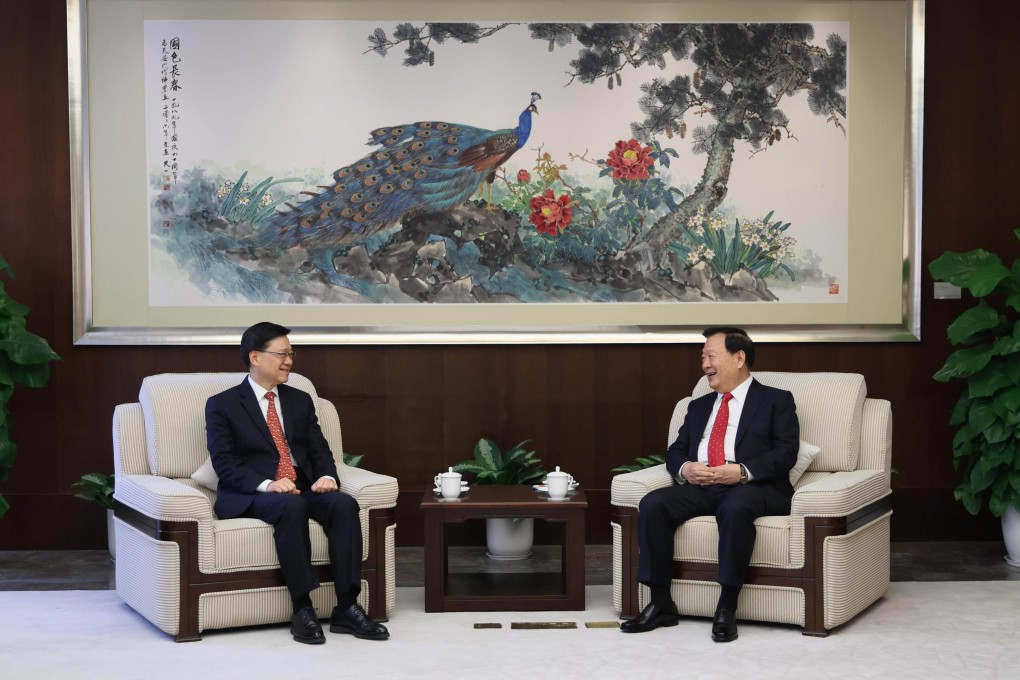Beijing’s point man on Hong Kong affairs tells city leader he’s ‘very satisfied’ with quick passage of Article 23 national security law
- Hong Kong and Macau Affairs Office director Xia Baolong meets Chief Executive John Lee and other top officials in Shenzhen for update on city’s latest developments
- Political analyst says meeting serves not only to boost Hong Kong officials’ morale but also convey central government’s instructions

“Hong Kong can now stride forward confidently on the prosperous path of development, focusing its full attention on developing a vibrant economy and a caring community,” Lee said, two days after the bill was unanimously passed by lawmakers.
The new law would allow Hong Kong to “establish solid fortifications and consolidate its defence wall” in the transition from the chaos of the anti-government protests in 2019 to order.
“It was a glorious achievement of the implementation of the principle of ‘patriots administering Hong Kong’,” Lee said, referring to Beijing’s overhaul of the electoral system in 2021, a year after it imposed a national security law on Hong Kong.
Lee also said the legislation had “strong popular support” and its early completion was the “consensus” of the local community. Less than two months separated the start of the public consultation exercise for the bill and its passage.